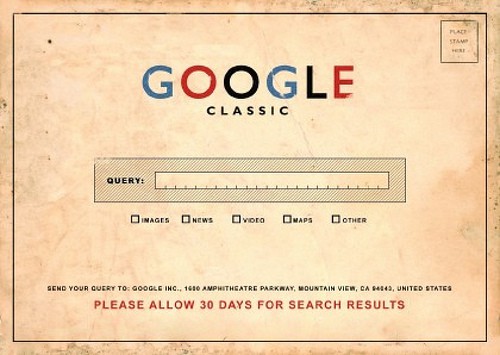There’s a reason why the default homepage on most web browsers is Google. And that’s because your online session starts with a search query.
A search query is basically the text you type in the search bar. Think about it, when you open up a browser, your intention is to either visit your favorite website (navigational), seek out information (informational) or buy something (transactional).
Those are 3 types of search queries I’ll be discussing today. And I will tell how it can help your business beat the competition on Google.
So where do you start? Here’s the rundown on each search query and what you can do to attract more sales for your business.
3 Types Of Search Queries You Need To Target
Navigational Queries
As the name suggests, navigational queries are a way for people to get from point A to point B via a search engine. For instance you might type “Twitter” or “BBC” into the search engine instead typing out the URL.
These queries can be your name, brand name or product names, so it’s important that you own the website people are looking for. Otherwise there’s not much use targeting those search queries.
One thing to remember is that navigational queries are also used to search for news on a brand or a product. For example instead of typing in LinkedIn and going to the site, someone might want to get the latest news topics on the social network.
And this brings us to the next type of search query which is informational.
Informational Queries
Let’s continue with the previous example. So somebody is searching for news on LinkedIn, which means they’re looking for more information on the topic.
This is what informational queries are all about, satisfying people’s need for knowledge. This means you should create content that’s relevant to your target audience. For instance a good example of an informational query is: Should I Begin to Use Google Adwords?
Here are a few ways you can get started with targeting informational queries:
- Start a blog and deliver valuable tips to make people’s lives easier
- Film how-to videos relevant to your business (remember YouTube is the second largest search engine after Google)
- Publish a definitive guide on a topic your audience needs help with. For instance our Beginners Guide To Growing Your Google+ Audience
- People are hungry for statistics, especially when they’re presented as inforgraphics
- The thing with informational queries is that people aren’t at the buying stage yet. So don’t be overly self-promotional in your content here because it will discredit you, just like an overly positive product review with affiliate links does.
The idea with targeting informational queries is to build awareness for your business and position yourself as a credible source.
Transactional Queries
People use transactional queries when they’re at the end of the sales cycle and ready to buy. These queries generally include your brand name (if it’s well-known), names of your products, call-to-actions and generic product terms (e.g. portable speaker, presentation software, etc.).
Because people are at the buying stage, you want them to find your product pages when they are searching online. So here’s what you can do to get found by potential customers:
- Do a keyword search
- Optimize your product pages with relevant keywords
- Consider Google Adwords because sponsored results can take up most of the search results that are above the fold (see picture below)
- Google Adwords also offers some neat features to distinguish your offering, such as; image ads, rich media ads and video ads
- Use location to your advantage, e.g. Helsinki pizza restaurant
Keep in mind that with product pages, you can publish as many pages as you want. It doesn’t cost you anything to add a new page on your own website. So you might want to create a page to target several transactional queries. However don’t use the same content, as Google doesn’t appreciate duplicates.
There’s a fine line between writing content for humans and search engines. While it’s important to target search queries with relevant keywords, your task here is to keep it natural.
Google is getting smarter at spotting spammy content, and your safest bet is to write quality, unique and valuable content. Its social network Google+ and authorship markup also play a role in determining how relevant and popular content is based on the number of +1s, shares and comments.
For more tips on how to get started with SEO, check out: Search Engine Optimization: The Bare Minimum You Have To Do
Image by dullhunk





